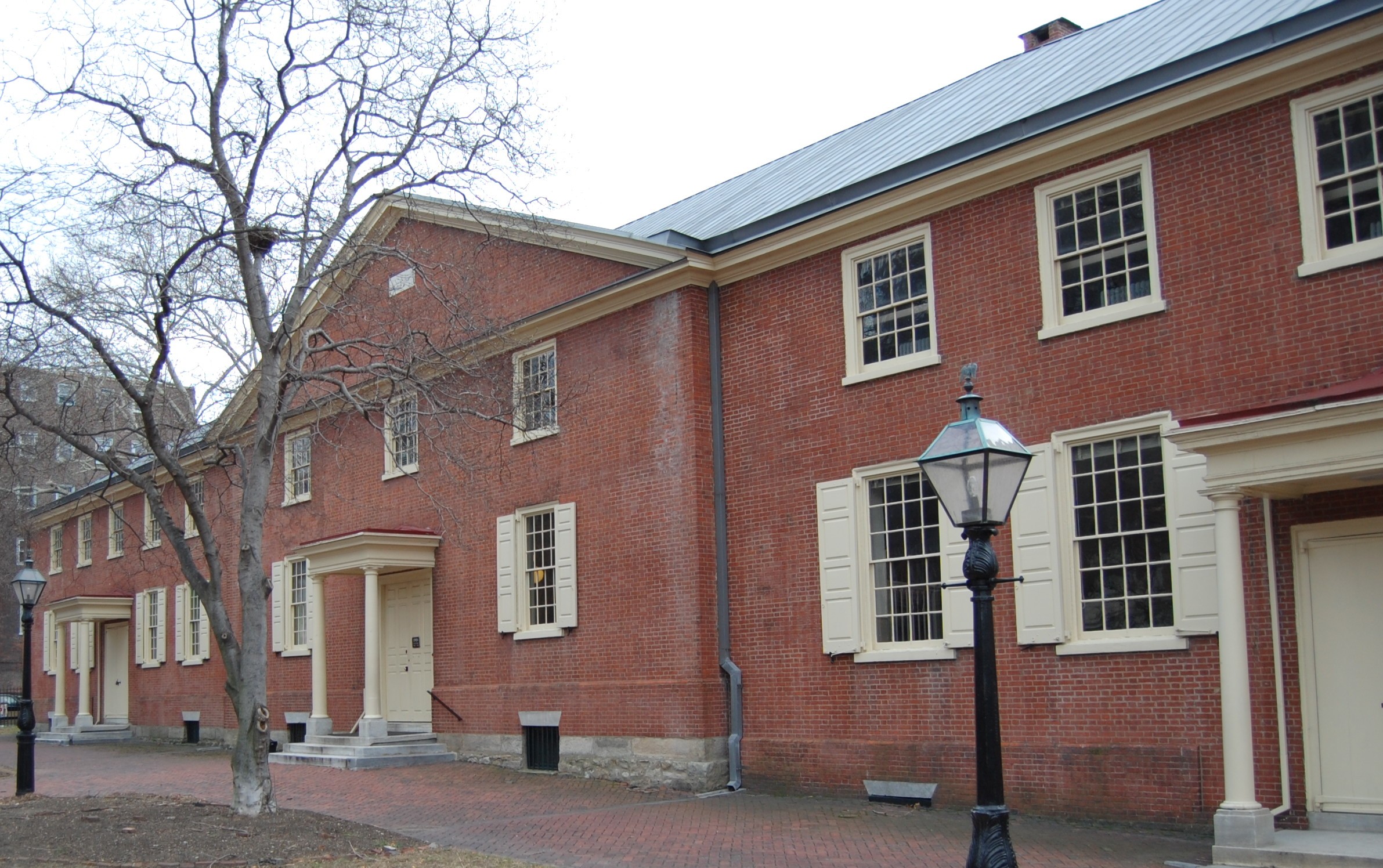In June, The Pew Center for Arts & Heritage announced its 2015 grants in support of the Philadelphia region’s cultural organizations and artists. Marking the Center’s 10th year of grantmaking, a total of more than $9.6 million will provide funding for 12 new Pew Fellowships, 34 Project grants, and three Advancement grants. The Arch Street Meeting House received a Project Grant (which is given to events, exhibitions, and performances) for its re-examination of the themes, stories, and Quaker history surrounding the organization.
The Project Grant is awarded in amounts up to $300,000, plus an additional percentage for general operating costs. Project grants are designed to support the presentation of exceptional cultural programs and experiences by Philadelphia-area artists and organizations for a wide range of audiences.
The Arch Street Meeting House, a National Historic Landmark, is a representation of the impact and continuing relevance of Quakers in Pennsylvania and beyond. It was built in 1804 on Philadelphia’s first burial ground–on land deeded to the Quakers by William Penn in 1701. Arch Street Meeting House aims to be the preeminent destination for experiencing and learning about Quaker contributions to society throughout history for thousands of visitors yearly from all around the world. The meetinghouse is open to the public for tours Tuesday – Saturday 10:00am to 4:00pm.
The Pew Center for Arts & Heritage is a multidisciplinary grantmaker and hub for knowledge sharing, funded by The Pew Charitable Trusts, and dedicated to fostering a vibrant cultural community in Greater Philadelphia. The Center fulfills this mission by investing in ambitious, imaginative arts and heritage projects that showcase the region’s cultural vitality and enhance public life, and by engaging in an exchange of ideas concerning artistic and interpretive practice with a broad network of cultural leaders.

Through the Philadelphia program, The Pew Charitable Trusts seeks to foster a vibrant civic life in the city. They partner with many local institutions to encourage a thriving arts and cultural community; support the health and welfare of the region’s neediest populations; inform discussion on important issues facing the city; and, more broadly, strengthen Philadelphia’s appeal to residents and visitors alike.
The idea that Arch Street Meeting House has is not a full-blown exhibit yet, Lynne Calamia, Director of the Arch Street Meeting House explains.
“We are basically going to be sitting down and thinking about the best way to interpret the building which may include exhibits in the future,” Calamia says. “This is a discovery process and we need to stay open to taking different approaches and examining new ways of telling the stories of the Arch Street Meeting House in ways that engage visitors. That might be a new slate of exhibits but it might be interpretive dance or reenactments of important moments of Quaker history, or tours of the burial ground. We don’t know yet and that’s the beauty of the Pew grant– it enables us to gather together historians, topical experts, interpretive planners, marketing folks, and others to determine the best way to explain the impact and continuing relevance of Quaker history and culture to the public.”
But why the need to retell the history of the Quakers in Pennsylvania?
Although there have been tours of the meetinghouse offered to visitors since the 1930s, Arch Street Meeting House has primarily been a Quaker place for Quakers since it was built in 1804. Yet, that appears to be changing.
In 2011, Arch Street Meeting House received National Historic Landmark status and in 2013 a director with public history experience was hired, directing the focal point towards an outwardly focused identity for the Arch Street Meeting House. Conveying Quaker ideals to the public in an easily accessible and entertaining way is a challenging and worth-while task that requires focused and collaborative effort. The Pew grant is making it possible for the Arch Street Meeting House to develop programming that makes Quaker history come alive and feel relevant to visitors of all ages.
“The Pew grant will enable us to complete a professionally led interpretive plan for the building, which includes audience interviews, historical research, as well as developing and testing new programming,” says Calamia. “For example, Arch Street Meeting House was built in 1804 on land that was deeded by William Penn in 1701. Something we haven’t even begun to interpret is the fact that the land surrounding the meetinghouse was Philadelphia’s first burial ground. I don’t just mean the first Quaker burial ground– the first burial ground, period. Since Quakers didn’t use headstones until the mid1850s, the history of the burial ground and the folks interred there has largely been ignored. However, the Pew grant will allow us to dig through record books, meeting minutes, maps, and other primary source documents to learn as much as possible about the 20,000 people who are buried on the property.”
“Pew has made it possible for Arch Street Meeting House to collaborate with Quaker historians and cultural heritage experts in order to develop a thoughtful and engaging experience for those who visit the meetinghouse,” Calamia states.
And that is an amazing reminder of the power of grants within the public history world.


Rose Law Miller
This is important and welcome news. I am glad the building can be just used by “us” except for one day a week. We must and want, to share the joy of being a Friend and this is one good way. I live in a Kendal but my heart lies at my Radnor Meeting.